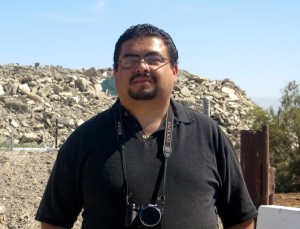
Last week, California’s Department of Toxic Substances Control met with Mecca residents to report that soil samples taken at Western Environmental, Inc., were determined to be nonhazardous. One community member shares his response in this editorial.
By Eduardo Guevara
The residents of Mecca had been patiently waiting for months for an action that would put an end to the problems and concerns we all have regarding the air, which has been the most visible part of the problem in the past, the groundwater, and the well-being of the nearby schools and apartments.
For one reason or another, I believe Western Environmental (WEI) has been systematically lying to the residents of Mecca. The most recent of these lies is: “WEI has not accepted materials outside of its permits.” There are a lot of manifests that show they have accepted California-only hazardous wastes without any kind of regulation from the state, and without having the appropriate infrastructure to safely handle them at their Mecca facility.
They have also cited in the past that the odors affecting the region were not originated at WEI – yet as soon as the entire world turned their eyes to them and the suspected ponds were removed, the odor problem almost completely disappeared.
We have concerns now, as we did more than a year ago, about the operation of the facility. However, the issue goes way beyond that: it is also a matter of public trust and also a question of WEI trying to hide behind a sovereign tribal nation – the same principle as if they operated in Canada or Mexico. They leased land from the Cabazon Band of Mission Indians for a reason. Even if they treat the soil and it leaves the facility “clean,” it does not remove from the equation that they received hundreds of tons of hazardous waste without the proper safety measures in place, that they made a profit from that, and that if not for the odors and the public attention, they would be still be receiving them right now. Also, months of negotiations were necessary for Department of Toxic Substances Control (DTSC) to enter and take samples.
Why is that, if they are an up-to-standards, clean and transparent facility?
DTSC was concerned about the soil going out marked as treated, which coincides with WEI’s asseveration that “the treated materials can be reused safely.” But WEI omitted to mention, however, that: the existing liner system is inadequate; that the groundwater monitoring system is inadequate for detecting contamination that may have reached the uppermost aquifer (due to the inadequate lining system); and that improvements are needed in administrative procedures. Basically, they need to document what they do in a proper way.
In other words, if not for the fact that they are on sovereign land, they would not be operating. And they know it.
And we just found out that the California Environmental Quality Act (CEQA), a statute that requires state and local agencies to identify the significant environmental impacts of their actions and to avoid or mitigate those impacts, will not apply to the tribe should they want to enter a cooperative agreement and allow WEI to receive California hazardous waste.
We don’t want an agreement without enforcement capabilities like the one announced by the South Coast Air Quality Management District, which will have no benefits to the community, and will only invest resources that are needed in other areas.
The report provided to our community is incomplete and inconclusive. It is limited in scope by WEI and does not contain proof that WEI operated correctly in the past. It’s just a snapshot of one month, not of all WEI’s years of operations.
We don’t want another Kettleman City. The notion that “no proof has been found that WEI had caused damage to the residents” is not only insensible but also irresponsible, as it is not only about damage to the residents, but the hazards that an inadequate facility of this kind imposes to the water and soil of our valley.
It is not only about that damage, it is about the fact that they have taken advantage of loopholes in legislation and of human errors. Now that they have been caught, they want to act as if the last eight years had not happened.
This is what environmental justice is all about – doing the right thing for the environment AND the population without even been asked to do it in the first place. They are not trusted, they are not safe, and they are trying to take advantage of the Cabazons’ good intentions. They must go to another place to do this business and abide by all the regulations involved, instead of looking for the environmental equivalent to tax paradises.
Eduardo Guevara is the associate director of Promotores Comunitarios del Desierto, a community based group dedicated to environmental justice in the Eastern Coachella Valley.
